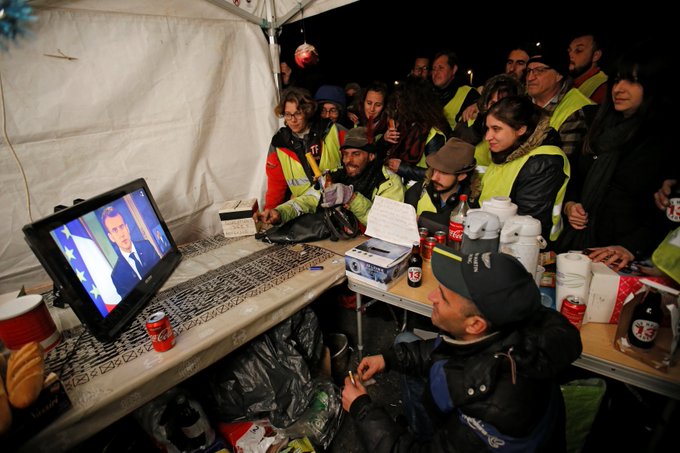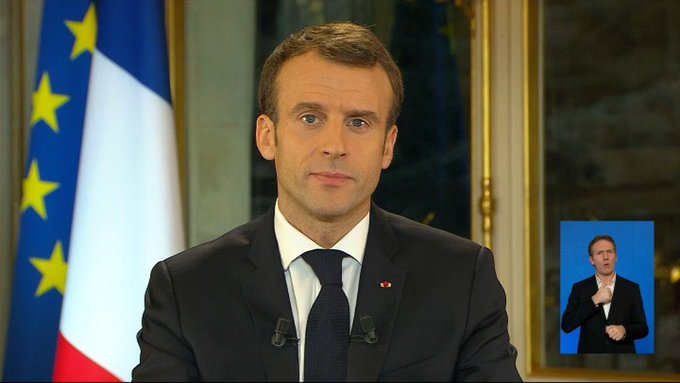Macron
announces state of ‘economic emergency’ in France, promises small
salary increases
10
December, 2018
As
France still struggles to get a grip on the massive protests that
have been raging through the country for weeks, President Emmanuel
Macron has admitted that the country is in a state of “economic
emergency.”
“Today,
we are forced to admit [it]. Today, I am announcing an economic
emergency in our country,” Macron said, addressing the nation on
Monday and calling for “support” for the French economy.
His
address comes after four weekends of protests that started over the
increase of fuel prices and turned into major discontent with his
economic policies that demonstrators said favored the rich. The
protests throughout the country boiled over into riots, clashing with
police who resorted to using tear gas.
The
president then announced that the “minimal wages will be …
increased by €100 ($113) per month” starting in May
2019. He also pledged to cancel taxes on overtime labor and introduce
special tax exemptions for people earning less than €2,000 ($2,270)
per month.
Macron,
who is often criticized for allegedly only serving the interests of
the rich in France, also announced that he ordered the prime minister
to develop proposals that would allow “enterprises and the
richest members of our society to contribute” to the
program of the national economy support, yet he refused to reinforce
the so-called “wealth tax.”
Macron
scrapped the Solidarity Tax on Wealth (ISF) that forced all French
households with assets of over €1.3 million ($1.48mn) to pay an
additional percentage in 2017, provoking a wave of criticism from the
public and the opposition politicians. French MP and the left-wing
‘Unbowed France’ Party leader, Jean-Luc Melenchon dubbed Macron
a “President for the Rich.” In his Monday,
speech, Macron still defended his stance on the issue by saying that
the wealth tax “did not really help” France.
Macron
also effectively blamed his predecessors for the poor state of
affairs in France. He said that the living standards have been
deteriorating for some 40 years against the background of the
increasing income gap, which together fueled the social tensions. “It
has been impossible to fix that in the recent years,” the
president said.
“We
will respond to the economic and social urgency with strong measures,
by cutting taxes more rapidly, by keeping our spending under control,
but not with U-turns,” Macron said.
The
people, however, did not quite believe the bright future Macron
painted in his speech as many called such measures populist while
arguing that they would not bring any real changes or would even make
the situation worse.
“For
13 minutes, Macron distributed money without announcing any economic
[reforms],” one person wrote on Twitter, calling such
approach “irresponsible.” Others insisted that
a “reform of the institutions” and more public
control over the government expenses is what is in fact needed.
Some
people hailed Macron’s announcement as an actual victory for the
Yellow Vest movement – an umbrella group behind the massive
protests. “In six weeks, the Yellow Vests got what the
trade unions did not get in 30 years,” one Twitter post
read.
However,
there were also those, who praised Macron for his “courage” and
congratulated him on his “brave” decision.














No comments:
Post a Comment
Note: only a member of this blog may post a comment.